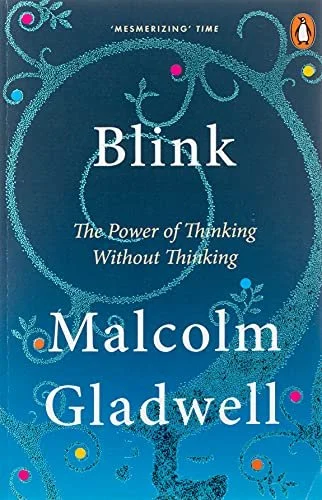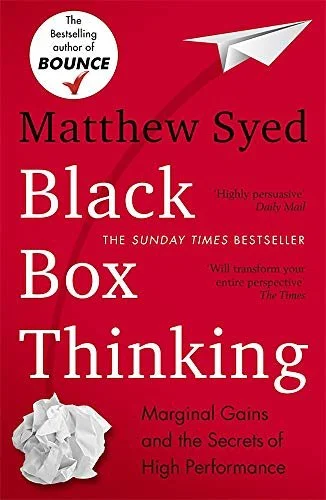New to Psychology? Start here…
Series: Recommended Psychology Books
“Can you recommend any good psychology books I can read?”
Keen to explore the world of psychology but not sure where to start? Here is a list of non-fiction books on a range of topics that will not only introduce you to some big psychological ideas and ground breaking research, but also hopefully inspire you to read and explore Psychology more for yourself.
NOTE - these books are not teaching the basic fundamentals and foundational theories of psychology - for a list of those books click here.
Some of the links in this article are Amazon affiliate links. As an Amazon Associate, I earn from qualifying purchases. By using the affiliate links I earn a small fee from your purchase, but it does not cost you anything extra to use them. They help me to be able to create more content for you. Thank you for the support!
Outliers: The Story of Success (Malcolm Gladwell)
"Outliers" is a book that explores the idea of success and how it is influenced by various factors beyond individual talent and effort. Through various case studies it challenges our notion of self-made success and reveals the level of complexity that goes into success. The author argues that outliers, or individuals who achieve extraordinary success, are often the result of unique opportunities and hidden advantages that are not immediately obvious.
This is a book that has had a wide influence on many people, with the idea of the now famous 10,000 hour rule gaining much wider recognition and popularity as a result of this book. This was a book I read before I started studying psychology at university and it really inspired me to read more of Malcolm Gladwell’s books, including our next one…
Buy here: Amazon
2. Blink: The Power of Thinking Without Thinking (Malcolm Gladwell)
"Blink" is a book about the power of our intuition, or what he refers to as our "rapid cognition." Gladwell argues that our unconscious mind is capable of making incredibly accurate decisions in the blink of an eye, without the need for extensive analysis or information. He illustrates this through various real-life examples, ranging from art experts to firefighters to speed dating, showing how people's snap judgments can be just as accurate, if not more so, than their well-thought-out decisions.
However, Gladwell also notes that this rapid cognition can be influenced by our biases and preconceptions, leading to snap judgments that are incorrect or unfair. He highlights the importance of being aware of these biases and learning how to control them, so that we can harness the power of our intuition in a positive and effective way.
Buy here: Amazon
3. Stolen Focus (Johann Hari)
"Stolen Focus" is a book that explores the ways in which modern technology, particularly smartphones and social media, are affecting our ability to focus and think deeply. He argues that the constant notifications, distractions, and endless streams of information that we are exposed to are preventing us from engaging in sustained, uninterrupted thought and are ultimately harming our mental health and well-being.
Hari cites a range of scientific studies and interviews with experts to support his claims, and he also draws on his own personal experiences with technology addiction and burnout. He suggests practical strategies for reducing our reliance on technology, and is a call to action for individuals, businesses, and society as a whole to reexamine our relationship with technology and prioritize our mental health and well-being.
Buy here: Amazon
4. Black Box Thinking (Matthew Syed)
"Black Box Thinking" is a book about the importance of learning from failure and adopting a growth mindset in order to improve our performance in all areas of life. Syed argues that many individuals and organizations have a "fixed mindset" that views failure as a personal or organizational flaw rather than an opportunity for learning and growth. This mindset creates a culture of blame, defensiveness, and resistance to change.
The book explores a range of areas, notably contrasting the world of aviation, in relation to learning from diasaters and failures in flying, with the healthcare and medical world to illustrate the benefits of a "growth mindset" that embraces failure as a necessary step on the path to success. He shows how industries like aviation have used "black box thinking" to investigate and learn from failures, resulting in significant improvements in safety and performance.
Buy here: Amazon
5. The Man Who Mistook His Wife for a Hat (Oliver Sacks)
"The Man Who Mistook His Wife for a Hat" is a collection of case studies about individuals with neurological disorders.
This is a classic and a must read for all psychology students. The work of Oliver Sacks was truly groundbreaking and his case studies will leave you moved and awe struck. He presents these cases in a compassionate and engaging way, highlighting the complex and often puzzling nature of the human brain.
The book covers a range of disorders, from cases of memory loss and dementia to rare conditions such as Tourette's syndrome and synesthesia. Sacks uses each case to explore the way in which the brain processes information and creates our sense of self, as well as the ways in which neurological disorders can disrupt these processes.
Sacks' compassionate and insightful approach makes the book accessible to readers of all backgrounds, and encourages us to see the individuals behind the diagnoses. A great introdiction to the inner workings of the mind, and the biological processes that may be involved.
Buy here: Amazon





